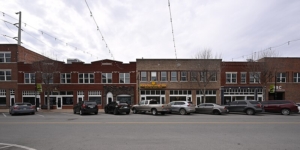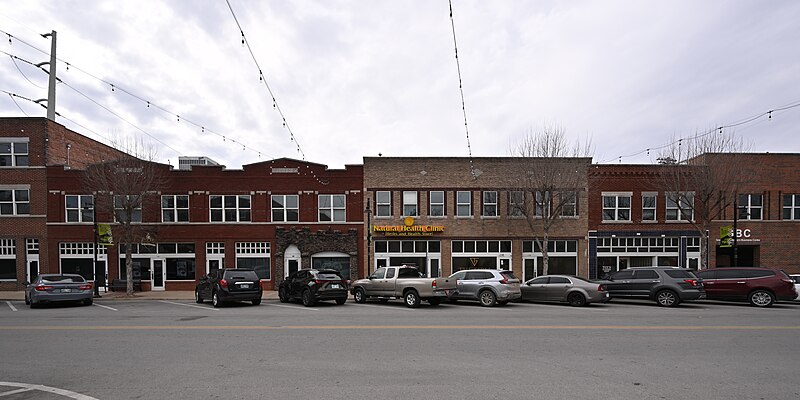Many federal programs support revitalization projects for cities and specific neighborhoods and currently, there is an abundance of revenue flowing to cities. The Community Development Block Grant (CDBG) Program, administered by the Department of Housing and Urban Development (HUD), is one of the oldest and best-known programs supporting municipal revitalization projects. The federal agency also oversees the Choice Neighborhood Implementation Grant program, which recently awarded $325 million for seven revitalization projects. These types of funding allocations are made annually, and hundreds of projects result from the support. Revitalization projects are about to launch throughout America, so contracting opportunities will be abundant.
City leaders in Waco, Texas, have announced plans to redevelop 100 acres of the downtown area. This mega-million-dollar initiative will be divided into at least four phases, including developing new public spaces and a commercial development area. Construction will include new public buildings, a convention center, a performing arts complex and a sports entertainment venue.
The entire redevelopment plan will take years to complete, but work on the first phase will be immediate. The project will start with the restoration of the city’s buried Barron’s Branch Creek. The plans involve preparing the area for development by installing street and utility infrastructure and mitigating the floodplain. Approximately 2.5 million square feet of development space will become available when that work is completed. Cost projections for the first phase of work are approximately $170 million. A competitive sealed bidding process is planned for 2025.
City leaders will oversee the second part of Phase 1, which will include the construction of a new city hall and an administrative headquarters for the Waco Independent School District. The cost estimate for the project is pegged at approximately $420 million. This part of Phase 1 will also include constructing several public parking garages, an upgraded park area, and new street infrastructure. Schematic design is underway, and construction will be delayed until all plans are complete.

The Greenwood District in Tulsa, Oklahoma. Photo by G. Edward Johnson
The Greenwood District in Tulsa, Oklahoma, historically known as “Black Wall Street,” is also about to be revitalized. A key component of this plan is the development of a Pop-Up Plaza, which will serve as a public square. It will be designed to serve as a flexible public space for community events, pop-up markets and cultural activities. It will also provide an amphitheater for events with a range of amenities, including seating, lighting, and areas for art installations. A revitalization project cost of between $14 million and $22 million has been projected.
Officials in Las Vegas, Nevada, will restore the city’s historic west side of the city, and the effort will include the replacement of Marble Manor, a low-income housing community. This $326 million housing redevelopment project will be part of a larger ongoing community revitalization initiative that will also include adding new retail, education centers, and multimodal transportation options to the area. A grant of $50 million from the federal government helped launch the project.
The existing 235 housing units will be demolished and replaced with 627 low-income, middle-income units. The new housing will combine townhouses and multifamily apartment buildings around a large central plaza with open green space and shaded recreation areas. The redevelopment will add more entryways to the surrounding neighborhood streets, improving transportation and enhancing walkability. The new retail will include grocery stores, a job training facility and an early childhood development center. Streets will be enhanced, new lighting will be installed, and a community garden will be constructed. Work is planned to begin in 2025.
Officials at the Broome County Industrial Development Agency will oversee the construction of a new urban industrial building in Westover, New York. The $11.3 million effort will include developing the area for industrial use and will require construction of an elevated pad to raise the ground by about eight feet. A new road with water, sewer and electric connections and stormwater improvements will also be required. The project timeline for design and construction has is yet to be determined, but RFQs will soon be issued for the engineering and design of the elevated development pad.
City leaders in Calumet, Illinois are in the planning stage for a public-private partnership. The objective will be to transform an old shopping center into a mixed-use development for about $160 million. The River Oaks shopping center building and its surrounding area will be redesigned and renovated to create a complex surrounded by green space. It includes retail, restaurants, housing, entertainment and offices. A rooftop area will be developed to host community gatherings and events. The state has committed $60 million to acquire the property, and officials will seek a developer to fund the rest and deliver the project. The architectural design plans are completed but a developer still needs to be selected. The city hopes to make that selection and be ready for a launch by early 2025.
Hensley Field, an unused naval air station in Texas, will be redeveloped soon into a sustainable urban community with homes, schools, retail, healthcare facilities and public waterfront park space. City leaders in Dallas will oversee the $390 million development, including constructing approximately 7,000 new housing units. Neighborhoods will be designed with amenities and easy access for residents. Mixed-income housing options will include apartments, duplexes and single-family homes. Approximately 185 acres will provide public open space, parks, trails, an urban farm and a marina.
The entire area will undergo brownfield remediation before development begins. New roadways will be designed for multimodal transportation options with designated bike lanes, walking paths, and access to Dallas Area Rapid Transit bus lines. The city will seek a master developer later in 2024. Site development is expected to begin in 2025, and the project will be developed and completed in three separate phases.
Very similar redevelopment projects are being launched throughout the U.S. and these large, complex efforts call for not only construction but also engineering, landscaping, technology, security and equipment of almost every type.







